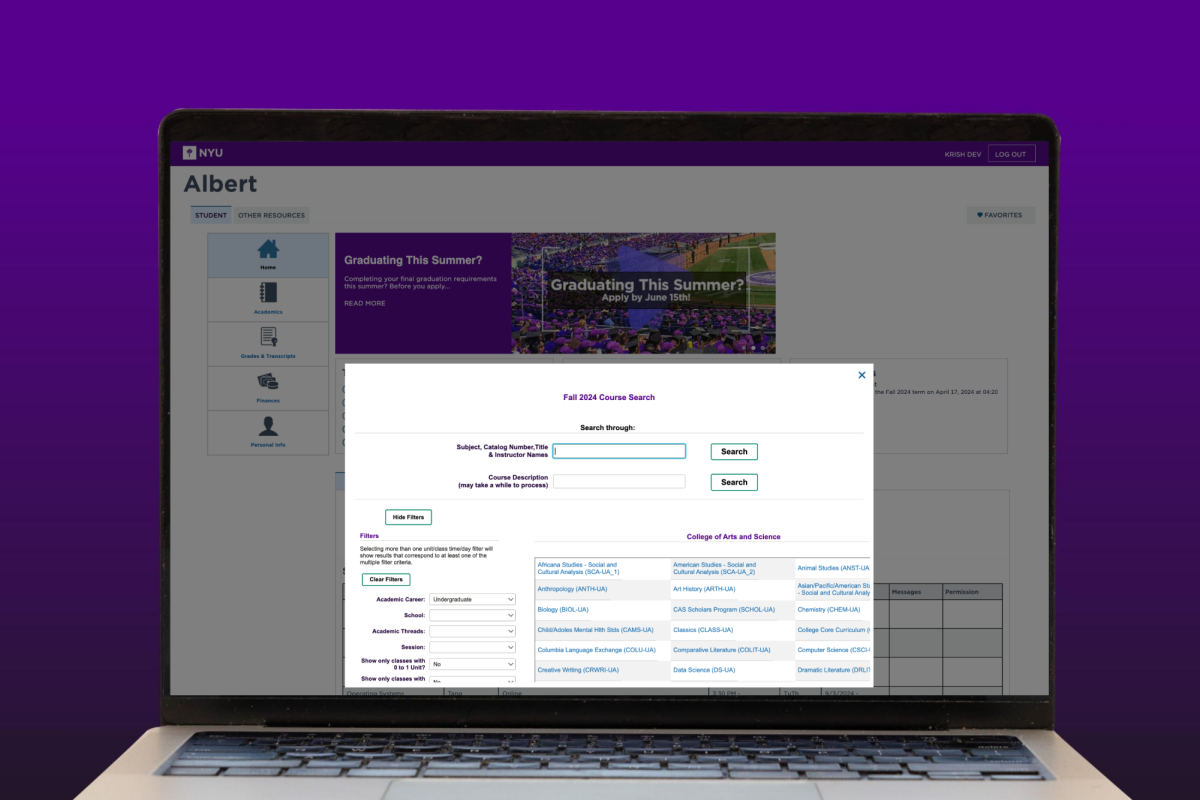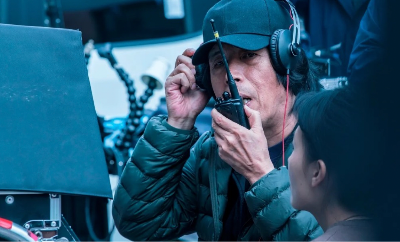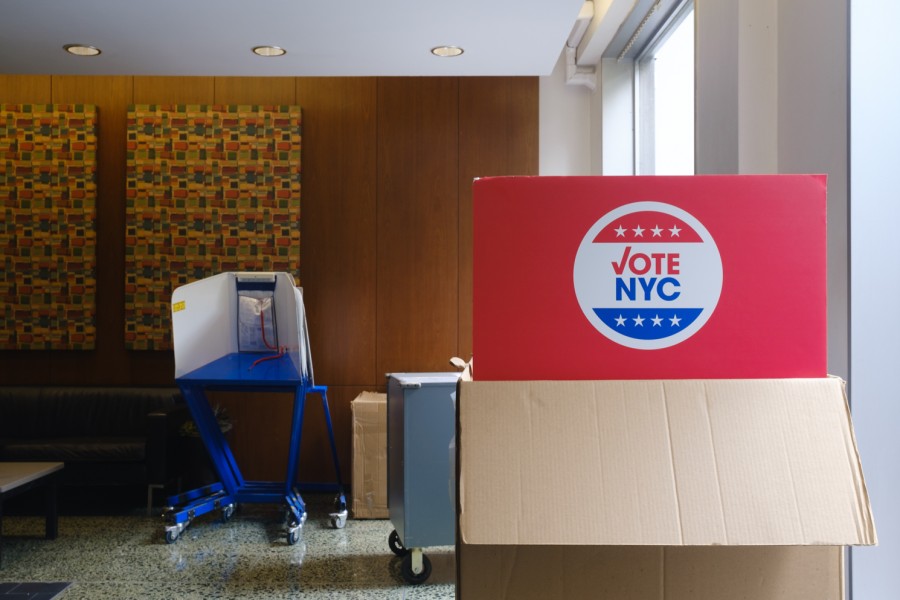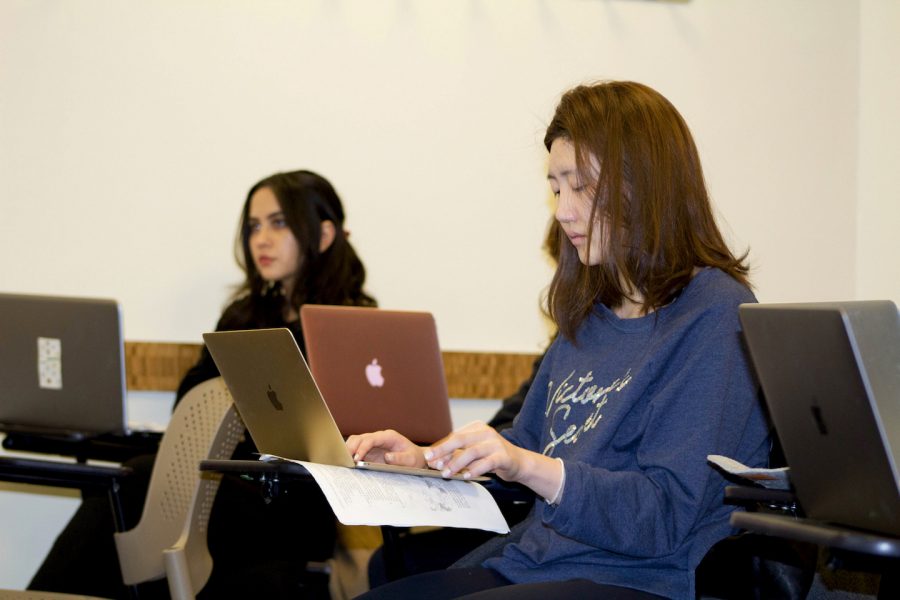Discussion on Distraction: The Debate on Laptops
Laptops can be helpful but also a hindrance to academic performance. Some professors are even banning laptops or Wi-fi use in the classrooms.
February 21, 2017
While technology advances every day and most lecture halls buzz with clicking laptop keyboards, some instructors are choosing to go back to the basics.
Many students rely on their laptops to take notes during lectures and look up relevant information to supplement their learning experience. However, it is hard to avoid the temptations of social media and the rest of the internet, especially when class topics just don’t grasp your attention. Some professors are taking back their classrooms by banning laptops — or electronics altogether — in efforts to increase student participation and active learning.
In Steinhardt’s Social Media Networking course, Clinical Assistant Professor Isra Ali plainly states in the class syllabus that laptops are not allowed during lectures or discussions, and she instead requests that students use a pen and paper for the notes.
“The lack of laptops fosters better class discussion and improves learning outcomes,” Ali said. “In an article from Scientific American, it states that students who used longhand remembered more and had a deeper understanding of the material.”
On the other hand, Tisch PhD candidate and Professor Jaap Verheul allows laptop use in class and believes that technology is important in the classroom, despite the challenges.
“If laptops are used excessively and students focus on their screens only, they are distracting and hinder a collaborative class dynamic,” Verheul said. “It is fairly easy, and frustrating, for us instructors to witness this process.”
But this doesn’t stop Verheul from believing technology has a place in lecture, and he challenges instructors and departments to find successful methods for laptop implementation.
“To ignore this transition into the digital in the classroom would not make much sense,” Verheul said. “Laptops have the potential to operate as great learning tools. I would encourage all departments to devise a comprehensive teaching philosophy regarding the use of laptops in class.”
He believes this would engender a sense of consistency between different classes, which would make it easier for instructors to communicate their information and for the students to acquire the skills necessary to use their laptops in class effectively.
Steinhardt junior Ana Miljkovic — who prefers her laptop over traditional notetaking — has a similar view to Verheul, but she understands why some instructors ban electronic devices. In her opinion, the pros of allowing laptops in the classroom outweigh the cons.
“To me, a laptop is more convenient than pen and paper when it comes to taking notes, especially if the class is fast-paced,” Miljkovic said. “However, I would say that a laptop is somewhat of a distraction for most students, and not allowing them in a classroom does call for more participation and engagement. Regardless, I think that by not allowing something so resourceful inside of a classroom, students and professors alike are limited in their capabilities.”
A version of this article appeared in the Tuesday, Feb. 21 print edition. Email Rachael Heistuman at [email protected].












































































































































